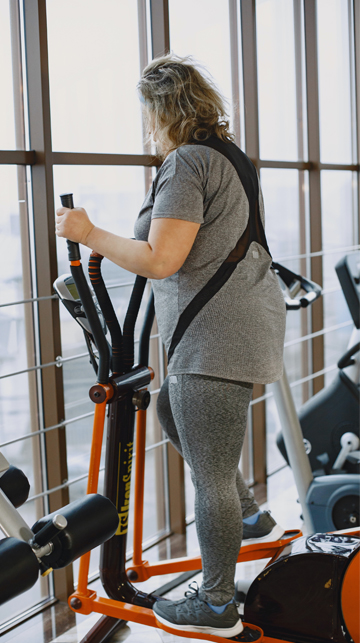The aim of cardiac rehabilitation – or “cardiac rehab” is to help you to recover and get back to as full a life as possible after a cardiac event such as a heart attack, coronary angioplasty or coronary bypass surgery.
It’s as much a part of your treatment as your medicines are. It also aims to give you the information you need to look after your heart health and keep you well in the future.
Everyone is different and you must get advice that’s relevant to you. Recovery time varies greatly depending on your heart condition, other health issues, and the treatment you’ve had.
People who are older, or have been particularly unwell, might find it takes longer to recover.
In the first few weeks after leaving hospital, you’ll have good days and bad days. As time goes by, you should improve and gradually feel better.
For the first two or three days at home, it’s best to take things easy.
Do about the same amount of moving around as you did just before you left hospital. Every day try to get up, wash and dress, and do some light activities such as making drinks and light snacks, going up and down the stairs a few times a day if you can, and doing some gentle walking.
Rest is also important for your recovery. It’s normal to feel tired after a heart attack or heart surgery. A compulsory rest period in the afternoon from 1300 to 1500 hrs is highly recommended.
When you leave hospital, you’ll be given a supply of your medicines to take home with you. These medicines may be different from the ones you were taking before you went into hospital. It’s important to take your new medicines as prescribed.
If you have any questions about your medicines, ask your GP, cardiac rehab team, or pharmacist.
It’s a good idea to make an appointment to see your GP soon after you get back home from hospital. You should discuss with your GP any concerns you have and get another prescription for your medicines.
It’s normal to have mixed emotions after being diagnosed with a heart problem. You may feel relieved that you’ve had treatment to help improve your condition, yet you may be concerned that you won’t be able to do as much as before,
be worried about further heart problems, or feel angry to be living with a heart condition. All of this is natural.
You may feel anxious, low, bad-tempered, or weepy. It’s important to talk about these feelings with your family and friends, the cardiac rehab team, or people at a heart support group.
Going to a cardiac rehab programme has been shown to reduce anxiety and depression
Regular physical activity can help you recover and become independent again more quickly. The amount of physical activity you can do in the weeks after you get out of hospital will depend on your heart condition, the treatment you’ve had, and your recovery.
Aim to do a little bit more activity each day, and gradually build up how long you exercise for and how often. At first it may seem very tiring, but this is normal. You’ll feel less tired as your strength and confidence return.
Walking is an ideal activity to begin with. Gradually increase the amount of walking you do over the first two or three weeks after you get out of hospital.
After two or three weeks you should be able to walk longer distances.
If you’ve had surgery where the breastbone was cut, you shouldn’t lift, push or pull anything heavy or carry out certain tasks until your breastbone is completely healed, which takes at least three months.
These tasks include things like carrying baskets of washing or shopping bags. When getting up from a chair, take care not to push through your arms. Take your weight through your legs instead.
As you recover, you will be able to do more and get back to your normal routine.
Research has shown that attending a rehabilitation programme is beneficial;
- It can improve your confidence and help you return to your usual activities more quickly.
- It gives you the chance to ask questions or talk about any worries you may still have, which can help relieve anxiety.
- You can meet other people who have been through the same thing as you, which some people find very helpful.
If possible, encourage your partner or a family member or a friend to go along with you. This can help reassure them and gives them the chance to ask questions. They may also benefit from talking to other carers.
How soon you return will depend on your heart condition, the type of treatment you’ve had, your recovery, and the kind of work you do.
If you’ve had a heart attack or heart surgery, you may be able to go back to work after six weeks if your work involves only light duties.
When you first go back to work, you may want to ask your employer if they can give you lighter work for a while, or if you can return to work gradually – such as working shorter days or weeks.
If you’ve had heart surgery, you can have sex as soon as you feel you’ve recovered.
Be careful not to put your chest wound under too much pressure.
